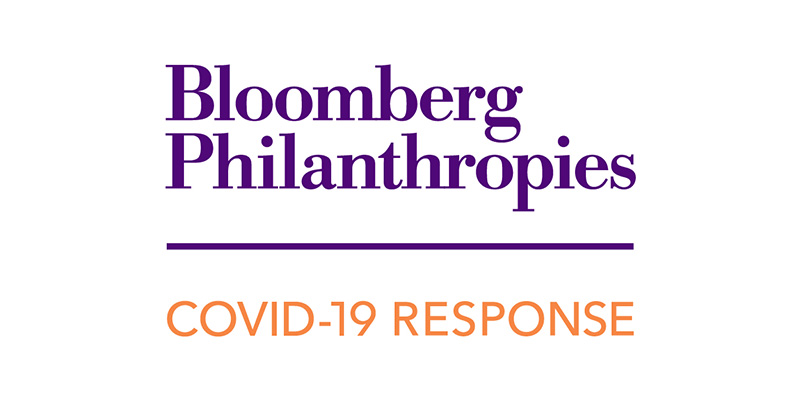Bloomberg Philanthropies Releases COVID-19 Management Metrics for Cities to Support Next Phase of Local Pandemic Response

New Guidance from Johns Hopkins Bloomberg School of Public Health and What Works Cities Will Support Communities’ Ongoing Response to the Pandemic, with an Emphasis on Serving the most Vulnerable Residents and Building Equity
New York, NY: Bloomberg Philanthropies today released the COVID-19 Management Metrics for Cities developed by the Johns Hopkins Bloomberg School of Public Health and What Works Cities to help city leaders collect and analyze key data to guide the next phase of recovery while keeping the most vulnerable residents’ needs front and center. The set of critical indicators plus technical assistance for cities around their utilization are the latest offering from the Bloomberg Philanthropies Covid-19 Local Response Initiative.
These new resources aim to help city leaders analyze data in seven key areas that should enable better pandemic-related decision making moving forward, namely: status of infection local rate; capacity of the healthcare system; status of testing and contact tracing system; levels of compliance with public health safety measures; protection and preparedness of emergency workers; protection and preparedness of congregate facilities such as nursing homes and prisons; and preparedness levels for business reopening.
“Data is a vital tool to help city leaders respond to the COVID-19 pandemic as safely and equitably as possible,” said Michael R. Bloomberg, founder of Bloomberg L.P. and Bloomberg Philanthropies. “As mayors put together their plans to reopen and revive their local economies, the set of metrics we’ve developed in partnership with Johns Hopkins will allow them to focus their resources on communities in need – reducing health disparities and saving lives.”
Through technical assistance and training from What Works Cities, local leaders will learn how to distill and analyze data by race, gender, age, neighborhood or zip code, census tract, and income level, to highlight the disparate impact of COVID-19 on different populations and guide resource allocation to work toward a more equitable city, now and in the future. By tracking the right metrics, mayors will be better positioned to drive equitable response and recovery efforts, advocate for at-risk populations, allocate resources according to need, and manage services to ensure the health and safety of all residents.
The COVID-19 Management Metrics for Cities were developed in partnership with the Johns Hopkins Bloomberg School of Public Health and What Works Cities in response to growing demand from mayors across the country for clear guidance for local government and are the first of their kind designed specifically for cities.
“Data should inform action to contain the pandemic,” said Dr. Joshua Sharfstein, MD, the Vice Dean for Public Health Practice and Community Engagement for the Bloomberg School of Public Health at Johns Hopkins University and director of the Bloomberg American Health Initiative. “These metrics offer a framework for mayors to use data to guide critical decisions in the weeks and months ahead.”
In addition to the COVID-19 Management Metrics for Cities, Bloomberg Philanthropies and its partners will offer a range of virtual supports to help cities utilize these metrics to guide day-to-day decision making in areas such as business reopening, operation of public transport, and the distribution of resources, and more. Select cities will also receive bespoke technical assistance to help them gather and analyze the necessary data and share it with the public.
All cities can download the metrics here.
“Using data for decision making is critical, now more than ever. As a partner in What Works Cities, we have worked for the last five years helping mayors make data driven decisions,” said Beth Blauer, Executive Director, Centers for Civic Impact at Johns Hopkins University. “As cities navigate the COVID-19 crisis and work toward economic recovery, the metrics being released today will become central to our guidance to help mayors make decisions equitably and based on sound public health evidence.”
This is the latest project from the Bloomberg Philanthropies COVID-19 Local Response Initiative, launched in March to help cities combat the devastating impact of coronavirus on the wellbeing of residents and local economies. More than 570 cities currently participate in the Initiative which aims to provide cities with the tools to understand, respond to and manage a dynamic public health crisis. The programs work to support cities to ensure that they are better prepared to slow the spread of coronavirus, protect their residents, and lead their cities through recovery.